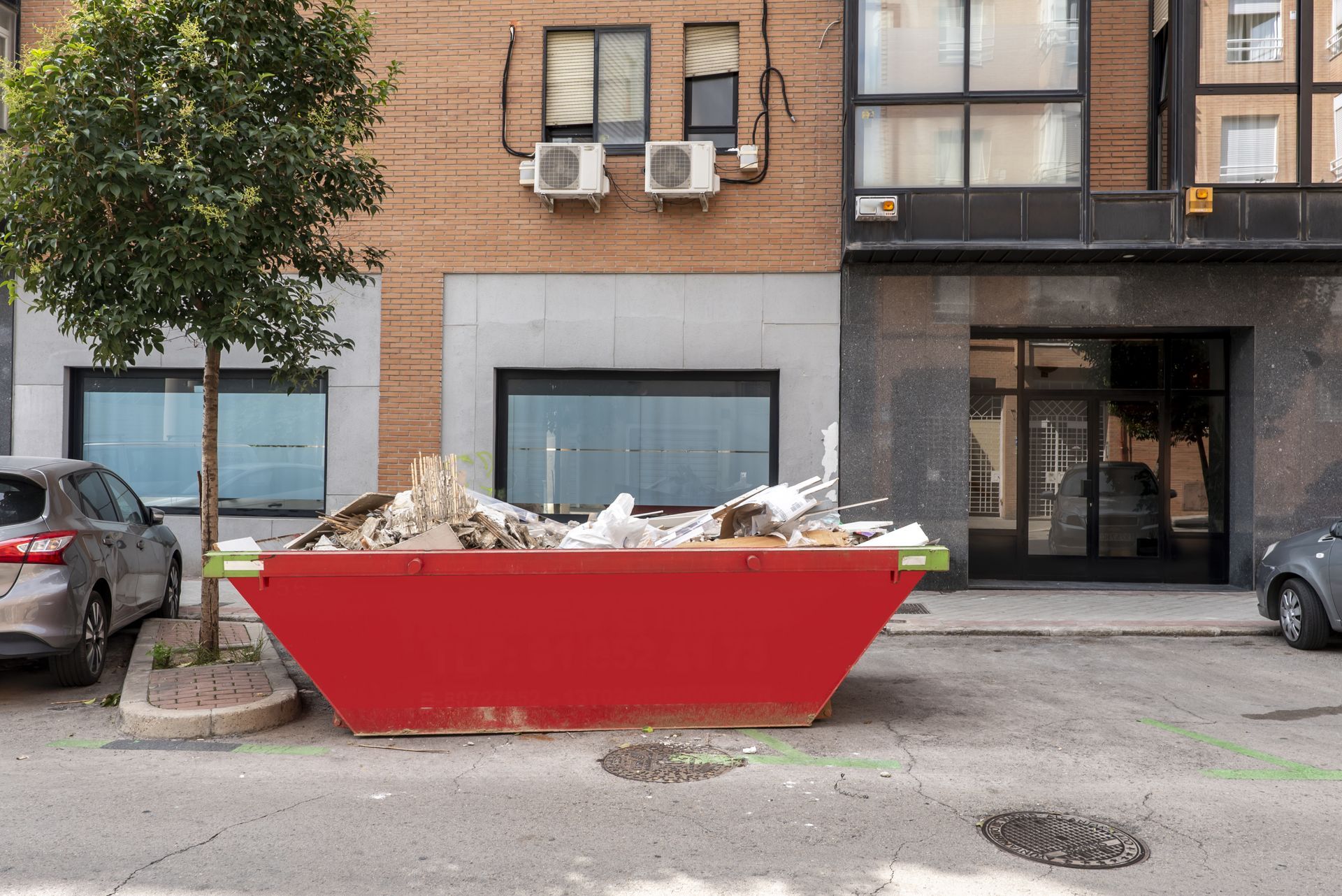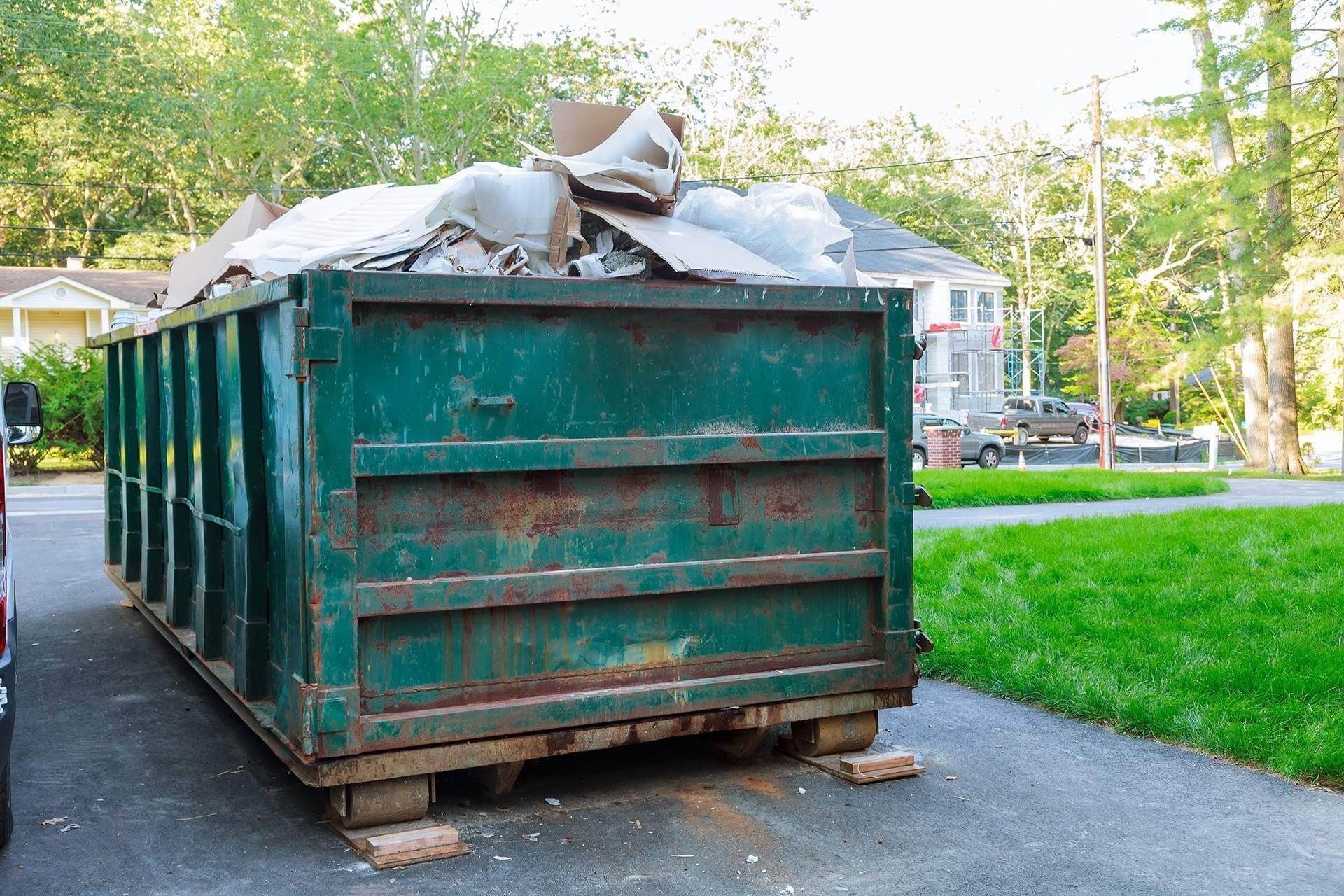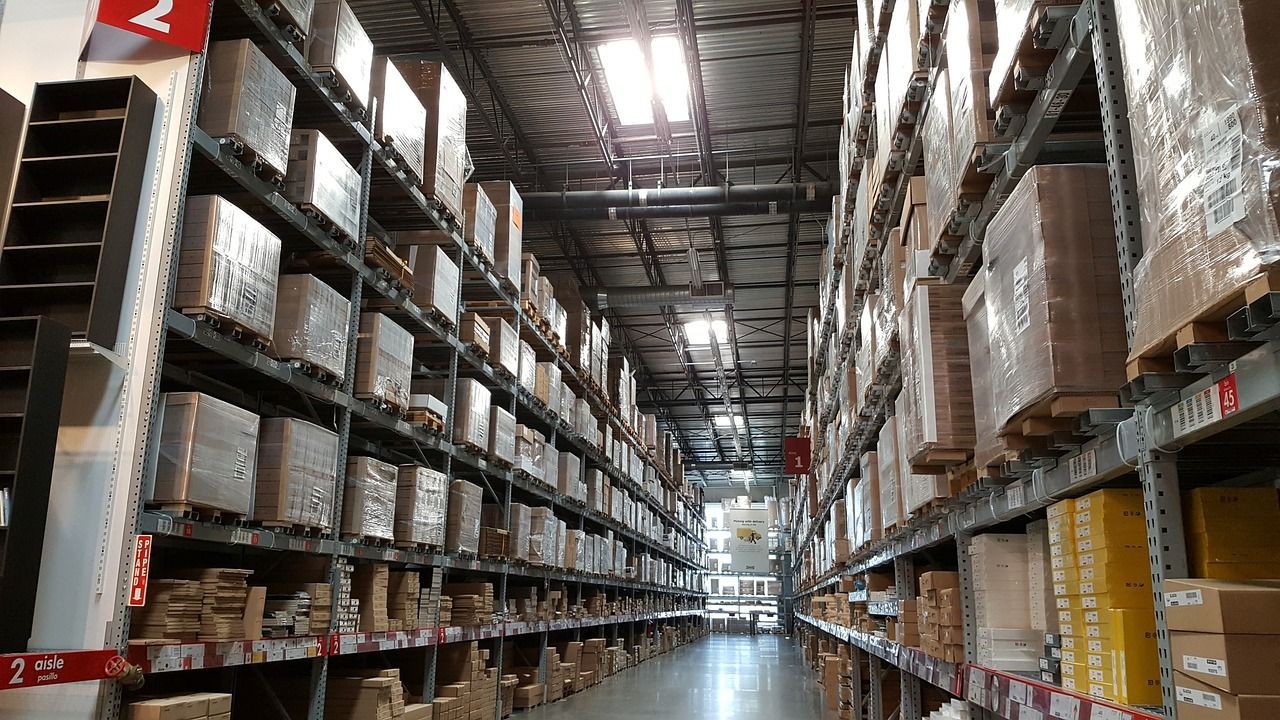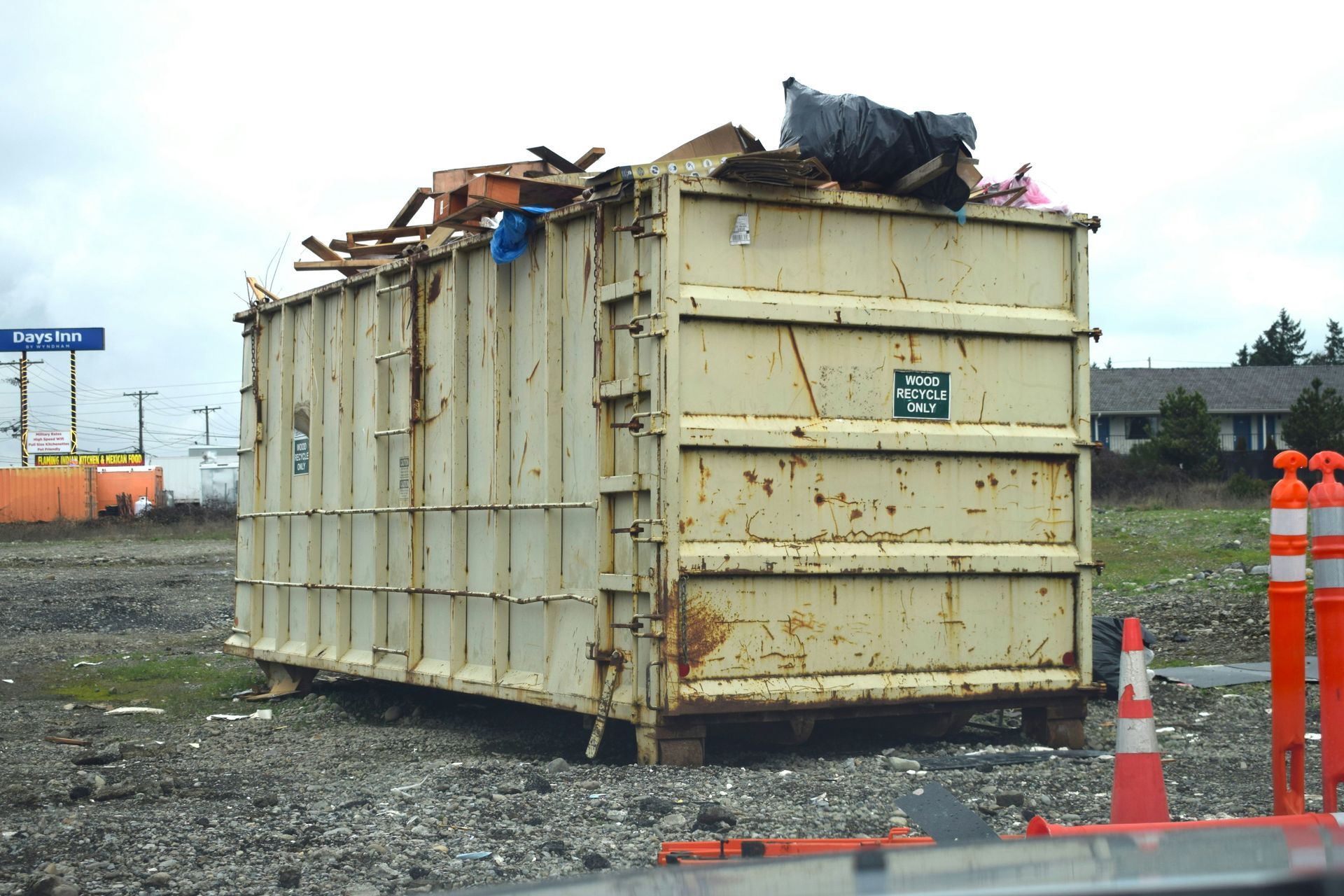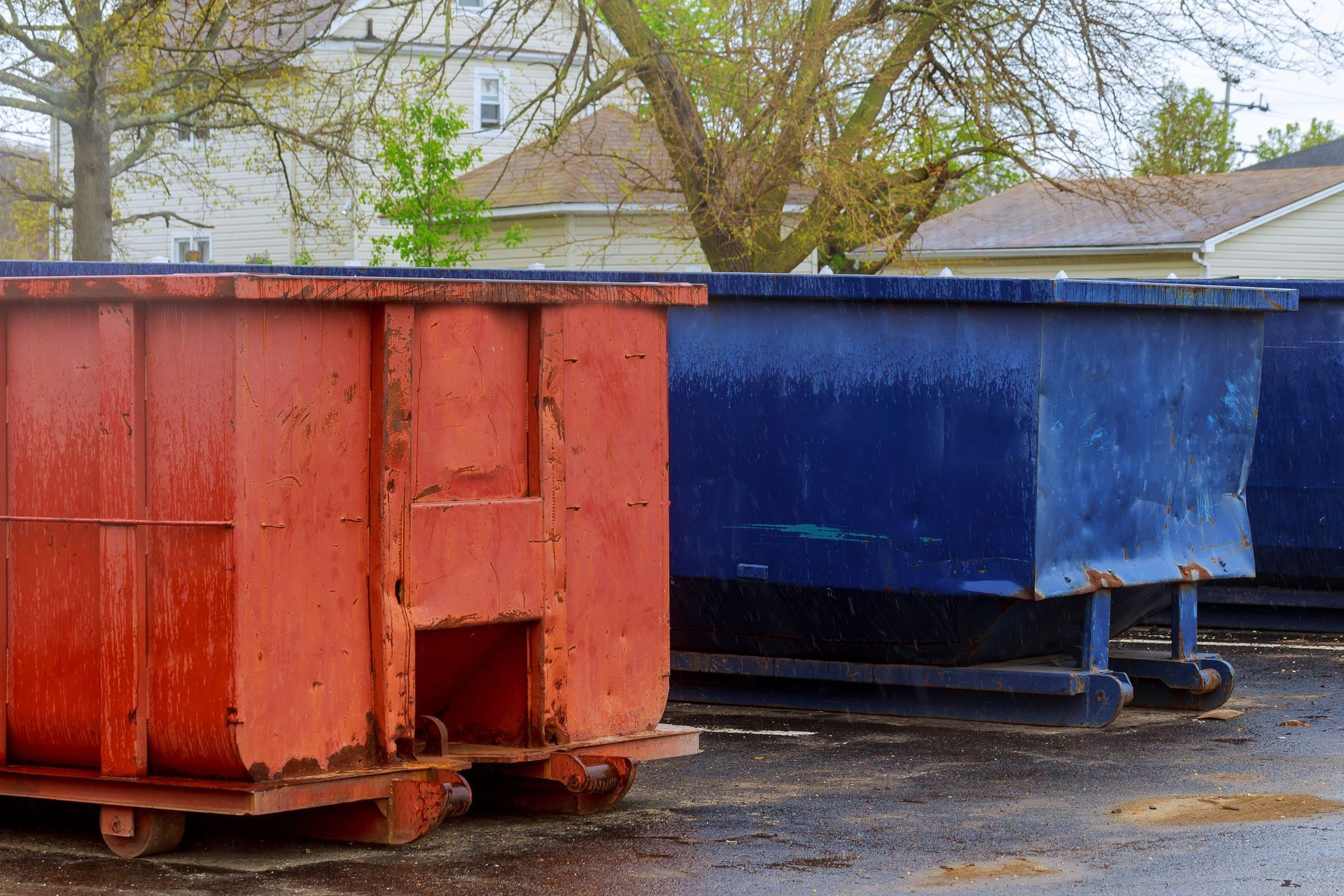362 Thoria Rd Batavia, IL 60510
Call (630) 279-7400
When tackling a home project, whether it's a renovation, decluttering effort, or landscaping overhaul, waste disposal is a crucial aspect to consider. Choosing the right dumpster size ensures that you have enough space for your debris while avoiding unnecessary expenses. In this guide, we’ll help you understand residential dumpster rental options, different dumpster sizes, and dumpster rental costs so you can make an informed decision.
Understanding Your Dumpster Needs
Before selecting a dumpster, it’s essential to evaluate the scope of your project. Are you cleaning out a garage, remodeling a kitchen, or handling a large-scale construction job? Each project generates a different amount and type of waste, impacting the dumpster size you’ll need. Consider these factors:
- Volume of debris – Estimate how much waste your project will produce.
- Types of materials – Heavy materials like concrete and brick require special consideration.
- Available space – Ensure you have enough room on your property or designated area for the dumpster placement.
- Rental duration – Some projects may take longer than anticipated, affecting your rental period.
- Local regulations
– Some municipalities require permits for placing dumpsters on public streets.
Common Dumpster Sizes and Their Uses
Dumpster sizes are measured in cubic yards, indicating how much waste they can hold. Here’s a breakdown of the most common dumpster sizes and their ideal uses:
10-Yard Dumpster
- Dimensions: Approximately 12 ft. long x 8 ft. wide x 4 ft. high
- Capacity: About 3 pickup truck loads
- Best for: Small cleanouts, minor remodeling, yard waste removal
- Ideal for: Attic or basement cleanouts, small bathroom renovations, or disposing of dirt and concrete
20-Yard Dumpster
- Dimensions: Approximately 22 ft. long x 8 ft. wide x 4.5 ft. high
- Capacity: Around 6 pickup truck loads
- Best for: Medium-sized renovations, roofing projects, and flooring removal
- Ideal for: Kitchen remodels, deck removals, larger garage cleanouts, or carpet and flooring disposal
30-Yard Dumpster
- Dimensions: Approximately 22 ft. long x 8 ft. wide x 6 ft. high
- Capacity: About 9 pickup truck loads
- Best for: Large home renovation projects, major cleanouts, and construction debris
- Ideal for: Whole-home remodeling, major landscaping projects, or large amounts of bulky furniture
40-Yard Dumpster
- Dimensions: Approximately 22 ft. long x 8 ft. wide x 8 ft. high
- Capacity: Around 12 pickup truck loads
- Best for: Extensive construction projects, commercial cleanouts, and demolition work
- Ideal for: Large-scale demolitions, home additions, estate cleanouts, and commercial renovations
Factors Affecting Dumpster Rental Cost
The cost of a residential dumpster rental varies based on several factors. Understanding these factors can help you budget effectively:
- Dumpster Size – Larger dumpsters cost more than smaller ones due to increased capacity.
- Rental Duration – Longer rental periods result in higher dumpster fees.
- Location – Costs can vary based on local disposal fees, availability, and transportation distance.
- Weight Limit – You might be charged more if you surpass the weight allowance.
- Type of Waste – Certain materials, like hazardous waste or heavy debris, may come with extra fees.
- Seasonal Demand
– Prices may fluctuate based on peak seasons for construction and home projects.
To get an accurate estimate, it’s best to contact Dan’s Hauling Company at
(630) 279-7400 for a quote tailored to your specific needs.
Tips for Selecting the Right Dumpster Size
Choosing the right dumpster size prevents overpaying and ensures your project runs smoothly. Follow these tips:
- Assess Your Project – Identify the type and volume of waste you’ll generate.
- Size Up, Not Down – If unsure, opt for a larger size to avoid overfilling.
- Check Local Regulations – Some areas have restrictions on dumpster placement.
- Plan for Disposal – Ensure easy access to the dumpster to streamline waste removal.
- Consult a Professional – Speak with our experts at Dan’s Hauling Company to select the most cost-effective option.
- Consider Weight Restrictions – Heavier materials may require a different approach to avoid overage fees.
- Schedule Pickup in Advance – Booking a timely pickup prevents overflow and project delays.
Common Mistakes to Avoid When Renting a Dumpster
While renting a dumpster is straightforward, there are some common pitfalls to avoid:
- Underestimating Size Needs – Choosing a dumpster that’s too small can lead to extra costs for an additional rental.
- Ignoring Weight Limits – Going over the weight restriction can result in significant overage fees.
- Not Checking Prohibited Items – Dumping hazardous materials can result in fines or additional disposal charges.
- Poor Placement – Placing the dumpster in an inconvenient location can make loading difficult.
- Waiting Too Long to Book – Availability can be limited, so secure your rental early to ensure it’s available when needed.
Contact Dan’s Hauling Company for Reliable Dumpster Rentals in Batavia, IL
If you need a
residential dumpster rental in Batavia, IL,
Dan’s Hauling Company is here to help. With a range of dumpster sizes, competitive pricing, and prompt service, we make waste disposal easy and hassle-free. Call us today at
(630) 279-7400 to book your rental and keep your home project on track. We also offer residential and commercial
junk removal services and
dumpster services.
FAQs
How do I select the correct dumpster size for my work?
Assess the volume of waste you anticipate. For small cleanouts, a 10-yard dumpster is sufficient, while major renovations may require a 30-yard or 40-yard dumpster. If unsure, our team can guide you.
What's the maximum rental period for the dumpster?
Standard rental periods range from a few days to a week, but extended rentals are available for an additional fee. Contact us for flexible rental options.
What materials are restricted for disposal in the rented dumpster?
Hazardous materials such as chemicals, batteries, tires, and flammable liquids are not allowed. Check with us for a full list of prohibited items.
How much does a dumpster rental cost?
Prices vary based on size, duration, location, and waste type. Call (630) 279-7400 for a customized quote.
Are there permit requirements for dumpster rentals?
Local regulations dictate permit requirements for dumpsters. Street placement usually necessitates a permit from the city, whereas placing it on your own property generally doesn't. We can help you navigate local permitting.

